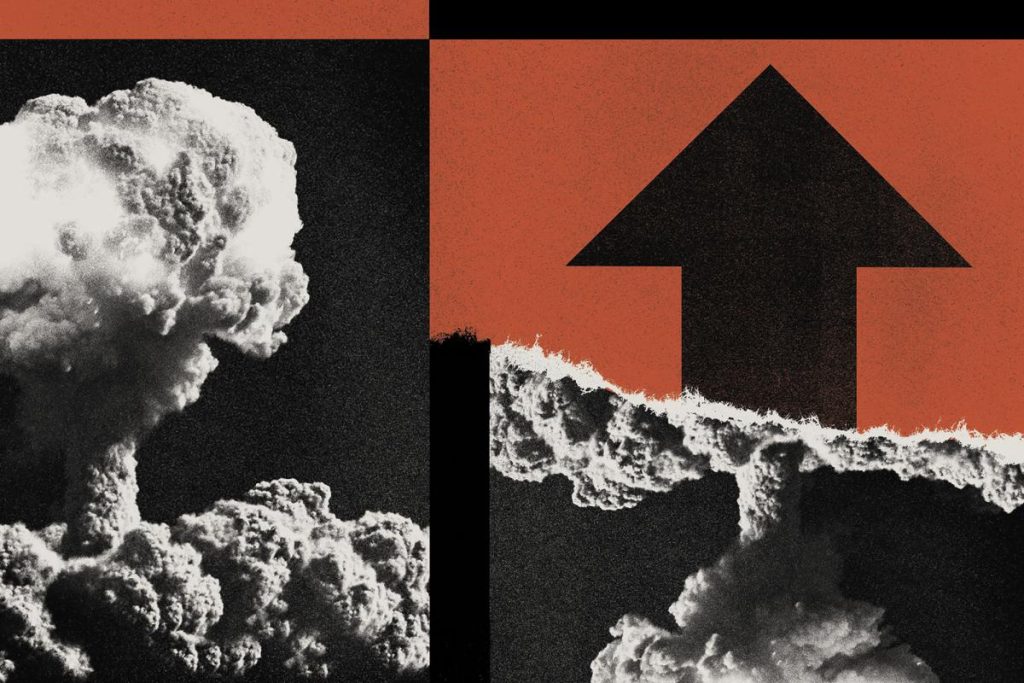The nuclear disarmament: Progress and obstacles are deeply intertwined, creating a convoluted path for global powers to chart. Though the eventual aim—eliminating all nuclear weapons—is laudable and important for global peace and security, the obstacles faced along the way are numerous and significant. The use of nuclear weapons has, since the cold war, been seen as a dangerous possibility—one that must be mitigated, ideally through complete nuclear disarmament.
Nuclear Nonproliferation: The United States and Russia
It’s no secret that the United States and Russia have had differing views regarding nuclear disarmament and arms control. However, the New START Treaty symbolizes a hope of these nuclear weapon states joining forces for the first time in history towards reducing their nuclear arsenals. Nonetheless, the reduction of nuclear weapons, without achieving complete nuclear disarmament, can still be seen as progress.
In accordance to the New START Treaty, both nations agreed to strategies of reducing their deployed nuclear weapons, even in the face of criticism. The US and Russia, which together possess the greatest number of weapons of mass destruction, have the pivotal role in nuclear arms control and disarmament, as they account for over 90% of the world’s total nuclear weapons. The treaty entry into force has signaled a desire for these superpowers to commit to peace.
States of Compliance Concern: Case Study of North Korea and Iran
North Korea and Iran, known for their attempts to develop or possess nuclear weapons, present a challenge to the goal of a world free of such arms. The arms race in these countries threatens international security. An international initiative led by the United Nations and Security Council has prioritized imposing sanctions and diplomatic negotiations to discourage further escalation. The international atomic energy agency plays a pivotal role in verifying compliance of these states to nuclear disarmament.
The United States has invested efforts in addressing these issues of arms control, especially in North Korea and Iran, through various dialogues and negotiations. But the question remains—how successful can individual states be in achieving disarmament without the collective will of the international community?
The Modernization Question and the Peaceful Uses of Nuclear Energy
While the discussion on nuclear weapons continues, the question of the peaceful uses of nuclear energy also comes into play. Nuclear energy is a powerful resource, and when used responsibly, can help achieve significant development goals. Many nations rely on atomic energy for their electricity supply.

Some nations are continuing to modernize and upgrade their nuclear arsenals while arguing for peaceful uses of nuclear energy. Ideally, the use of nuclear energy should not offer a covert route to developing weapons of mass destruction. The need for a clear divide between nuclear power for energy vs weaponry is essential for international peace and security.
Modules: Steps to Universal Nuclear Disarmament
The journey toward nuclear disarmament is a complex one with myriad facets to consider. Certain steps to achieve disarmament can include rendering weapons of mass destruction useless, decreasing the number of nuclear warheads, and establishing international security frameworks to maintain checks and balances. A broad consensus within the international community is vital.
Analysis of Existence of Nuclear Weapons and Risk of Use
It is an ominous reality that the existence of nuclear weapons inherently comes with a risk of their use. Nuclear war cannot be won and must never be fought— a sentiment shared by many in the international community. This concern over the risk of nuclear war makes the goal of disarmament even more pressing.
The Role of the United Nations in Nuclear Disarmament
The United Nations, through its Security Council, plays an irreplaceable role in nuclear disarmament pursuits. Its endeavors range from fostering negotiations to promoting a culture of nuclear disarmament in the international community.
The United Nations has reiterated its commitment to the total eradication of nuclear weapons, emphasizing the need to disrupt a possible arms race and to prevent the devastation a nuclear war would cause. The chaotic aftermath of such a war cannot be justified, and peace and security would be severely affected. The UN’s push towards disarmament remains vital for the health and security of our global society.

